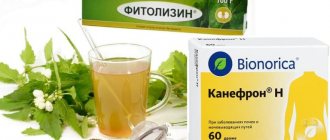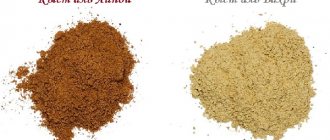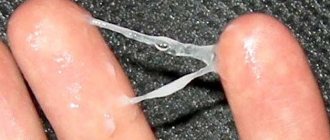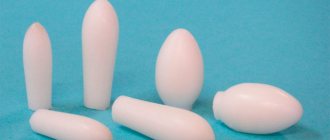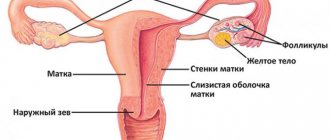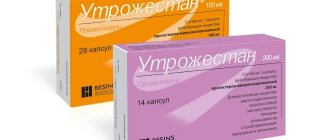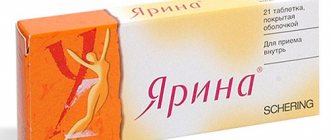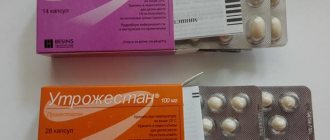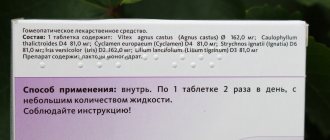Cystitis is an inflammatory disease of the bladder. It is observed in different age categories, but is more common in older women.
This is due to the anatomical and physiological characteristics of the female body. The disease can be chronic. In the treatment of cystitis, along with specific drugs, a special role is given to dietary nutrition.
General rules
Cystitis is an inflammation of the bladder mucosa, which is often accompanied by inflammation of the urethral mucosa ( urethritis ). The disease is characterized by painful and frequent urination, pain in the lower abdomen. The urine is cloudy and sometimes mixed with blood. In severe cases, the temperature may rise and diffuse abdominal pain may appear. Anti-inflammatory treatment is prescribed ( antibiotics , uroseptics ) and a prerequisite for treatment is proper nutrition.
What diet is prescribed for cystitis? The main points of nutrition are the elimination of the irritating effect of substances on the mucous membrane of the urinary tract, sparing the mucous membrane and increased excretion of urine - the foods consumed must have a diuretic effect. In order to enhance diuresis, it is also recommended to drink 2 liters of fluid per day. Vegetables rich in essential oils, strong broths, spices and foods high in oxalic acid and its salts are excluded from the diet.
Diet for acute cystitis
In case of acute cystitis, bed rest is prescribed and the doctor's medication prescriptions are followed.
The diet includes:
- vegetables and fruits with a diuretic effect (watermelons, zucchini, cucumbers, pumpkin), decoctions of diuretic herbs (bear ears, knotweed, corn silk, diuretic collection);
- fruit drinks and juices from lingonberries and cranberries, which have antiseptic and anti-inflammatory effects. protocyanidins have antimicrobial effects;
- in the first days of severe intoxication (fever, chills , general malaise), it is advisable to give up protein foods (meat, dairy products) and switch to a vegetarian diet - pureed vegetables and fruits, baked apples, fruit and vegetable juices;
- calcium chloride water;
- weak green tea without sugar;
- lean types of meat and fish (the amount of protein is within the physiological norm);
- milk, fermented milk products, cottage cheese, unsalted cheese;
- bran and whole grain cereals;
- olive oil.
Products to be excluded:
- containing essential substances (parsley, celery, radish, garlic, onion, basil, radish, hot seasonings and sauces (horseradish, mustard, mayonnaise, ketchup);
- concentrated broths rich in extractive substances - fish, mushroom and meat;
- sour fruits and vegetables (tomatoes and tomato juice, lemon), with the exception of cranberries;
- salted, pickled, pickled;
- sweet confectionery and sugar;
- salt restriction;
- containing artificial colors;
- with a high content of oxalic acid (sorrel, spinach);
- alcoholic drinks, sweet carbonated drinks, strong tea and coffee.
The diet is adjusted if salts ( oxalates or phosphates ) are detected in repeated urine tests and the pH of the urine changes. When urine is acidified (pH 4.6-5.8), Diet No. 6 , and when alkalization occurs, Diet No. 14 is .
The loss of uric acid salts (urate) is associated with a decrease in pH . The main mechanism of their development is excessive intake of purine from fish, meat and poultry. The most effective treatment in this case is to prescribe a diet similar to the diet for gout . Excluding liver, kidneys, meat broths from the diet, limiting meat, fish, poultry and fats normalizes pH .
If oxalates appear in the urine, it is recommended to reduce the consumption of fats and foods high in oxalic acid: sorrel, spinach, carrots, potatoes, beets, beans, parsley, rhubarb, tomatoes, strawberries, oranges, red grapes, grapefruit, leafy greens, cranberry juice, cocoa , green beans, blackberries, figs, gooseberries, raspberry juice, tea. You should include foods rich in magnesium in your diet - wholemeal bread, cereals. Magnesium salts bind oxalates in the intestines and reduce their absorption.
The precipitation of poorly soluble calcium phosphate occurs when the equilibrium shifts to the alkaline side. Alkalinization is caused by milk and all dairy products, sweet berries and fruits, legumes, potatoes and many vegetables (except green peas, pumpkins, mushrooms), as well as fruit and vegetable juices. They must be excluded and preference should be given to meat, fish, eggs, cereals, sour berries (red currants, lingonberries), and honey. Meat and fish broths are allowed, and drinks include tea, coffee, and rosehip decoction.
Diet for chronic cystitis
If acute cystitis is treated correctly and in a timely manner, then complete recovery occurs. For some reasons, a chronic form of the disease occurs, which tends to periodically worsen. In this case, you need to constantly monitor your diet.
- with chronic cystitis, you will have to forever abandon (or significantly limit) spicy foods, seasonings and spices. Significantly limit smoked meat and fish products, fried foods in the diet, at least during periods of exacerbation;
- limit vegetables that have an irritating effect: onions, garlic, radishes, sorrel, horseradish, parsley, radish. At least use them according to how you feel. Perhaps this list will expand to include other vegetables and fruits that will cause irritation and aggravate the disease;
- exclude products with dyes and preservatives, sugar substitutes, frozen semi-finished products with preservatives;
- give preference to natural foods, mainly boiled, stewed or baked;
- regularly consume fruit juices, compotes and fruit drinks;
- maintain a drinking regime (1.5-2 liters of liquid);
- periodically conduct preventive courses of taking decoctions of diuretic herbs;
- avoid constipation by eating a lot of vegetables with coarse fiber, cereals, bran and whole grain bread;
- limit alcohol intake.
It is important to prevent hypothermia, strengthen the immune system and not break the diet.
What can and cannot be eaten if you have cystitis?
An integral part of the effective treatment of cystitis is a special diet developed by specialists taking into account the effects of foods on the human genitourinary system. Proper nutrition should be aimed at reducing pain, active excretion of urine, eliminating inflammation in the bladder, and stimulating the immune system. It is necessary to thoroughly understand what a patient can and cannot eat with cystitis.
Meat products
During cystitis, it is better to eat lean meats prepared in the correct way, because... they contain a large amount of protein necessary to restore damaged bladder epithelium.
Have you been fighting CYSTITIS for many years without success?
Head of the Institute: “You will be amazed at how easy it is to cure cystitis by taking it every day...
Read more "
Prohibited use for this pathology are:
- fatty meats, especially lamb and pork;
- smoked meat products;
- salo;
- shashlik.
Meat should be prepared only in a healthy way - by boiling or baking. Meat dishes from lean beef, veal, and poultry are not prohibited for consumption in the form of:
- steam cutlets;
- minced meat with vegetables;
- meatballs, etc.
When cooking meat dishes, it is prohibited to add any spices, as well as hot seasonings in the form of onions and garlic.
Seafood
Regular consumption of fish and seafood allows you to constantly supply the body with complete protein, vitamins E, D, A, Omega-3, magnesium and calcium, phosphorus, iron, selenium, zinc, etc.
Patients with cystitis should eat lean sea fish and seafood cooked without seasoning.
Smoked, salted, pickled and dried fish are considered prohibited products until complete recovery.
Dairy
When diagnosing cystitis, dairy products should be consumed with caution, as they create fertile ground for pathogenic microorganisms. In acute cases of the disease, doctors recommend giving up dairy products for several days.
As the patient's condition improves, fermented milk products should be gradually included in the daily diet. The following should be considered prohibited dairy products for the entire period of illness:
- sour cream;
- cottage cheese with high fat content;
- sharp and salty cheeses.
These products can irritate the walls of the bladder and lead to increased inflammation.
A small amount of natural products - low-fat cottage cheese, yogurt, fresh kefir or fermented baked milk - is not prohibited for the patient. When consuming milk, you need to focus on its tolerance to the body.
Vegetables and greens
The most useful vegetables for cystitis are those with a high fiber content and diuretic properties. These include:
- young zucchini;
- carrot;
- pumpkin with seeds;
- spinach;
- celery;
- lettuce leaves;
- eggplant;
- beets;
- fresh cucumbers.
Thanks to the diuretic effect, pathogenic microbes are removed from the body and the immune system is strengthened.
Some of the listed vegetable crops have an anti-inflammatory effect. Pumpkin porridge or stewed cauliflower will help reduce the concentration of pathogenic microorganisms and eliminate the inflammatory process. Fresh herbs also have anti-inflammatory properties: parsley, dill, cumin.
Prohibited vegetable crops for cystitis should be considered:
- tomatoes and products based on them - tomato juice, paste, ketchup, etc.;
- radish;
- asparagus;
- beans.
Fruits and berries
During therapeutic nutrition, it is important to prevent additional irritation of the organs of the urinary system, which undergo negative changes in their structure.
Some fruits and berries, along with numerous beneficial properties, also contain a high content of fruit acids, which can negatively affect the bladder and urinary tract.
Their use can lead to the development of an inflammatory process in these organs, increased urination, pain and a deterioration in the general condition of the patient. Fruits prohibited for cystitis include:
- all cistrus fruits (tangerines, oranges, lemons, grapefruits);
- bananas;
- plum;
- cherries and sweet cherries;
- avocado;
- ginger;
- sour apples.
For fruits, nutritionists recommend pears, pomegranates, sweet apples, and dried fruits.
Berries that are not prohibited for inflammation of the urinary system are:
- watermelon;
- cranberry;
- cowberry;
- strawberry;
- black currant;
- rose hips, etc.
They not only replenish the patient’s weakened body with essential vitamins and microelements, but also actively fight infection in the genitourinary system thanks to their antimicrobial properties.
A special place in the list of fruits not prohibited for cystitis is occupied by melons (watermelons, melons) due to their high diuretic effect. Eating watermelon frequently will help:
- reduce the concentration of pathogenic microorganisms in the bladder and remove them out;
- cleanse the body of toxins and waste;
- enrich the body with glucose and sucrose to support the immune system;
- carry out prevention of urolithiasis.
Sweets
Sugar and flour contribute to the active proliferation of pathogenic microflora of the urinary system, leading to increased inflammation and exacerbation of cystitis. In this regard, it is necessary to completely abstain from cakes, pastries, cookies, preserves, jams, ice cream and other sweets for the entire period of treatment.
But to maintain the immunity of a weakened body, it is necessary to ensure the intake of sucrose and glucose into the body. This is achieved by including fruits, berries and vegetables that are not prohibited for cystitis in the daily diet.
To treat cystitis, our readers successfully use Galina Savina’s method
This cheap odorous remedy will get rid of cystitis forever! Sold in every pharmacy, called...
Consuming a small amount of honey will serve as an excellent substitute for the listed prohibited sweets, provided there is no allergic reaction to this product. It can be added to cereals, herbal teas and decoctions.
This beekeeping product has antibacterial, anti-inflammatory, soothing properties, and activates the immune system.
Seasonings
All therapeutic measures taken to eliminate inflammation of the bladder will not have an effect if the prohibited irritation of the mucous membrane of the urinary organs is not eliminated. Violation of this rule will lead to an exacerbation of the symptoms of cystitis: painful and frequent urination, pain, urinary incontinence, etc.
It is important to prevent prohibited foods and dishes from being included in the patient’s daily diet. These include:
- hot sauces (ketchup, mayonnaise);
- spices (mustard, horseradish, pepper);
- seasonings;
- salty dishes.
Hot sauces, which chefs often add to various dishes to enhance their flavor, contain not only natural foods prohibited for this pathology (oils, eggs, onions, salt), but also artificial colors, preservatives, and various additives. It is also harmful for a healthy person. In the recipes of ketchups and sauces, the salt content limit is almost always exceeded.
Even a one-time meal with prohibited seasonings and spices can provoke a sharp deterioration in the condition of a person with bladder pathology and lead to further development of the disease.
Beverages
Drinking plenty of fluids daily helps flush pathogenic microorganisms from the bladder and reduce their harmful effects. The daily volume of drinks and water not prohibited for cystitis should be at least 2.5 liters.
A person with problems with the urinary system should drink sufficient amounts of clean water throughout the day. Other drinks that are not prohibited for this disease may be:
- mineral still water (Esentuki 17);
- weak tea;
- herbal infusions;
- juices, jelly and compotes from permitted vegetables and fruits;
- berry fruit drinks (cranberry, lingonberry).
Drinks that are not prohibited by doctors will be beneficial if they are prepared without added sugar and from fruits, berries and vegetables recommended by nutritionists for the treatment of cystitis.
Drinks made from cranberries and lingonberries are rich in hippuric and benzoic acids, which have an antibacterial effect on the patient’s urinary system.
Indispensable in the treatment of inflammation is the regular use of rosehip decoction, which has diuretic, antibacterial, and tonic properties.
Prohibited drinks that have a negative effect on the weakened body of a patient with cystitis are:
- any low-alcohol and strong alcoholic drinks;
- coffee;
- cocoa;
- strong tea;
- kvass;
- carbonated lemonades, etc.
Drinking coffee, alcohol and other harmful drinks listed is strictly prohibited throughout the entire period of treatment for the disease. This is due to an increased irritant effect on the walls of the bladder, leading to frequent urination, pain, and rapid dehydration. For this reason, natural juices from tomatoes, plums, cherries, citrus fruits, etc. are prohibited.
By strictly adhering to the prescribed diet and drinking regimen, you can speed up the recovery process from cystitis.
Authorized Products
Soups are prepared with vegetable broth. Cabbage soup made from sour cabbage, vegetable and cereal soups are allowed. They are seasoned with sour cream or butter, but any seasonings and herbs are excluded.
Main courses are prepared from lean meat (usually chicken, beef). It needs to be boiled, stewed with a little water or baked. Stuffed cabbage rolls (but without tomato sauce), stuffed zucchini, and boiled meat casseroles with vegetables and pasta are allowed. Low-fat fish is boiled or baked in milk or sour cream sauce. You can use all cereals and any pasta as a side dish. Porridge is cooked in water, you can eat krupeniki (casseroles) with cottage cheese, fruit pilaf. Among dairy products, milk, yogurt, and low-sour cottage cheese are allowed. Allowed 1 boiled egg per day. Many vegetables are allowed; they can be boiled, stewed, or made into vegetable cutlets in the oven. You cannot add spices to stewed vegetables (you can use sour cream or cream).
Ripe sweet fruits and berries, purees and jelly made from them, jellies and compotes without sugar are allowed. Honey is allowed, and for drinks - rosehip decoction, juices from sweet fruits, weak coffee and green tea, decoctions of cranberries, lingonberries, fruit drinks from these berries.
Sample weekly menu for cystitis
• First day.
Breakfast: buckwheat porridge, 150 grams of low-fat cottage cheese with pieces of plum or apple, a glass of freshly squeezed apple juice.
Second breakfast: a cup of lingonberry jelly (can be served with rye bread).
Lunch: vegetable puree soup, 150 grams of boiled chicken, a glass of rosehip infusion.
Afternoon snack: fermented baked milk.
Dinner: fruit salad of apple, pear, kiwi, a glass of kefir.
• Second day.
Breakfast: oatmeal with a fresh apple or lingonberries, a cup of herbal tea.
Second breakfast: apple juice.
Lunch: okroshka (without fatty meat, sausage, sour cream, vinegar), baked potatoes, a cup of cranberry jelly.
General principles of diet
A diet for cystitis is absolutely necessary. But this should not just be a balanced and nutritious diet, but the most gentle diet aimed at eliminating inflammation and improving urine flow. It is recommended to remove from the diet all irritating foods containing large amounts of essential oils and acids.
It is also necessary to observe the principle of fractional nutrition - eat food 4-5 times a day, in small portions, and drink more in between meals.
It is especially important to adhere to a diet during exacerbation of cystitis. In this case, a properly selected diet will reduce intoxication of the body, slow down the development of bacteria and prevent the disease from becoming chronic. If the worst does happen and the disease is already advanced, the diet will prevent exacerbation and reduce the frequency of relapses.
To get the maximum therapeutic effect from the diet, food for cystitis should be boiled, stewed or baked. Fried, pickled and smoked foods will only worsen the condition.
Diet for acute cystitis
The acute stage in women is accompanied by cutting pain, frequent urination, and high fever. Exacerbation of the disease occurs as a result of hypothermia, colds, excessively taken portions of alcoholic beverages, and prolonged use of antibiotics. The duration of the acute stage of cystitis is about a week.
The diet for cystitis in women at this stage is aimed at:
- stop the development of infection;
- reduce intoxication;
- facilitate urination;
- relieve pain syndrome;
- enrich the body with useful substances.
In the first few days of an exacerbation, it is necessary to avoid foods containing animal fats so that they do not overload the kidneys, which are actively fighting the infection at this moment. In small quantities, meat and dairy dishes are allowed to be introduced into the diet when the acute pain subsides. You cannot eat raw foods and be sure to heat them.
Indispensable for cystitis are pumpkin juice, cranberry or lingonberry juice, and a decoction of diuretic herbs. It is recommended to pay special attention to mineral water of the calcium chloride group.
Authorized Products
What can sick people eat and drink? In general, the range of acceptable and healthy dishes for cystitis is quite wide. The list includes:
- vegetables and fruits;
- fresh herbs from the garden;
- fermented milk products;
- cereals;
- lean meat and fish, chicken;
- berries (especially lingonberries and cranberries);
- dried fruits and nuts;
- vegetable oils and animal fats.
It is very useful to eat fresh, uncandied honey for cystitis. The delicacy has excellent antimicrobial and antiseptic activity, cleanses the urinary tract, and destroys pathogens.
As for drinks, it is allowed to include green tea and mineral waters in the diet. Pumpkin, carrot and apricot juices are very useful for cystitis. They can be consumed individually or mixed into a cocktail.
Drinking regime
Do you need to drink a lot of water if you have cystitis? With preserved kidney function, it is advisable for patients with acute cystitis and exacerbation of the chronic process to consume a large amount of healthy fluid. On average, we are talking about a volume of 2 - 2.5 per day. If there are no contraindications, then the function of washing the bladder and urinary tract is well performed by weak tea, rosehip decoction, various fruit drinks or juices, as well as mineral waters.
When treating this often common pathology, it is very important to know what the urine reaction is: acidic, or it is shifted to the alkaline side. Depending on this analysis, one or another diet will be prescribed, as well as mineral water. Therefore, drinking during cystitis depends on the pH of the urine and is determined by diet.
In some cases, cystitis does not occur in its pure form, but occurs in the form of pyelocystitis, when inflammation and microbial infection penetrate into the renal pelvis upwards from the bladder, and secondary inflammation occurs. And then it is especially important to consider the reaction, or pH of the urine, to help the bladder and ureters create unfavorable conditions. Thanks to the change in their usual habitat, which is “treacherous” for microbes, pathogenic microflora is quickly eliminated from the body.
If the urine has an acidic reaction, then for the purpose of pathogenetic treatment of cystitis and pyelocystitis, an alkalizing diet is used, which has No. 6. If the urine is alkaline, then it is necessary to use an acidifying diet No. 14. Let's consider diets for inflammation of the bladder, depending on the acidity of the urine.
Prohibited Products
You should remove from your diet all foods that can cause urinary tract irritation, pain and inflammation. These include all kinds of spices, seasonings, marinades, pickles and smoking. But this is not the entire list of foods excluded for cystitis.
What else patients should not drink or eat:
- canned food;
- strong broths;
- pickled vegetables, legumes, green and onions, turnips, rhubarb, horseradish;
- citrus;
- alcoholic drinks, beer, black tea and coffee;
- sugar, confectionery.
Women should remove pork, meat from young animals, store-bought convenience foods, various sauces and ketchups from their diet. Also, for cystitis, it is recommended to reduce the amount of table salt and give up chocolate and cocoa.
We exclude products
Some foods and drinks irritate the lining of the bladder.
To prevent symptoms from worsening, it is best to avoid consuming them during an infection.
Below is a list of known initiators that cause bladder irritation:
- Vegetables: It is widely known that peppers, sauerkraut, pickles, tomatoes and tomato sauce can cause discomfort.
- Fruits: Oranges, lemons, limes, grapefruits, tangerines, cantaloupes, plums, figs, cranberries, strawberries, blueberries, peaches, cherries and grapes can irritate a sore bladder.
- Protein and dairy products: pepperoni, salami, ham, tofu, hot dogs, sausages and smoked fish can cause bladder pain. Yogurt, sour cream, cheddar cheese, blue cheese, and Swiss cheese worsen cystitis symptoms.
- Cereals, Legumes, Nuts: Potentially irritating foods include soybeans, soy veggie patties, beans, pistachios, peanuts, pecans, walnuts, hazelnuts, soy flour and bread.
- Snacks and processed foods: Processed foods contain preservatives and seasonings that can worsen cystitis symptoms. You will have to avoid canned soups, chocolate, cakes, cinnamon, candy, instant noodles and seasoned potato chips.
- Herbs, spices and seasonings: mustard, mayonnaise, salad dressings, Worcestershire sauce, aspartame, saccharin and other artificial sweeteners, ketchup, cloves, chili powder, paprika, vinegar, soy sauce, irritate the inflamed organ.
- Beverages: carbonated drinks (regular and diet), vitamin water, coffee, green tea, herbal tea, powdered drinks, as well as tomato, orange, grapefruit, cranberry juice, sports and energy drinks, soy milk. Is it possible to drink alcohol if you have cystitis? With this disease, all alcoholic drinks are excluded.
Diet features
In addition to general recommendations for following a diet during cystitis, there are also separate instructions that allow you to normalize the patient’s condition in case of aggravation or chronic course of the disease.
For acute cystitis
The acute phase of cystitis lasts 5–7 days. In this case, the woman experiences significant discomfort, accompanied by pain and frequent urge to urinate. To get rid of painful symptoms, the diet during such a period should contain more dishes with a diuretic and antimicrobial effect.
Factors influencing the development of cystitis
Bacteria, to one degree or another, are present in the body of every person. They belong to the class of opportunistic microorganisms, i.e. a healthy person, being a carrier of an infection, may not get sick even once in his life. Its immunity helps the body successfully suppress pathogenic microflora. In order for bacteria to become active and begin to multiply rapidly, primarily affecting the mucous membranes, including in the cavity of the bladder, a certain confluence of circumstances or a number of factors predisposing to the disease are necessary. This is usually:
- severe hypothermia of the body;
- decreased immunity;
- hormonal imbalance;
- ignoring the rules of personal and sexual hygiene;
- poor nutrition;
- ingestion of toxins into the body;
- constipation;
- active sex life with the practice of anal and hard coitus;
- consequences of radiation therapy.
Various combinations of these circumstances cause symptoms of cystitis, expressed primarily by pain in the bladder area, frequent urge to urinate, changes in the color and smell of urine (turbidity, traces of blood, pus, epithelium), and increased body temperature.
Sample menu for the week
Guided by the list of permitted and healthy dishes for cystitis, you can independently create a treatment menu. It’s better to prepare it for a week at once - it’s more convenient to purchase the necessary products and calculate the nutritional value of the diet.
You should try to include a sufficient amount of light protein-containing dishes (1.0–1.5 g of protein per 1 kg of weight) and vegetables in your diet. As for fats, it is not advisable to either overload the diet with them or exclude them. This is the most important building material for endocrine organs in women, but it is better to remove coarse fats from the menu.
Why is diet important?
Nutrition for cystitis is an important part of treatment. The diet helps remove toxins, reduce inflammation of the bladder, and get rid of stagnant urine. The diuretic effect flushes out pathogenic microbes, which speeds up the body's recovery.
The necessary vitamins and minerals must be supplied with food. Not only acute cystitis is an indication for dieting. At the initial stage of the disease, you can completely get rid of the problem with the help of an adjusted diet. After an exacerbation, long-term maintenance of a diet helps to avoid repeated attacks.
Patients with cystitis are advised to adhere to the following dietary rules:
- limit the amount of proteins and eliminate fats altogether;
- food should have a diuretic effect;
- maintain a drinking regime;
- the amount of salt is minimal, it is better to avoid sugar and substitutes;
- the basis of nutrition is fiber to prevent constipation;
- use gentle types of heat treatment.
Nutrition for cystitis - what you can eat, what foods to exclude
Cystitis is an inflammatory process localized in the tissues of the bladder.
The disease can develop independently due to the invasion of harmful bacteria, hormonal imbalance, abuse of pharmaceutical drugs, or act as a complication of one of the chronic ailments.
Cure the disease in its advanced form is extremely problematic, so it is very important to adhere to an optimal diet that can improve well-being and reduce the intensity of inflammatory processes.
What causes bladder bloating?
Bladder inflammation, also known as cystitis, is a disease caused by bacteria.
The most common symptoms are the urge to urinate and a burning sensation.
Some substances in our diet can increase discomfort and cause bladder bloating.
- foods with high concentrations of vitamin C, such as carbonated drinks, juices and citrus fruits;
- dairy products due to the high content of allergenic lactose;
- foods high in potassium, including chocolate, tomatoes, coffee, nuts, seeds and some types of fish;
- spicy, sour foods;
- alcohol;
- carbohydrates in the form of rye bread, sugar and sweeteners.
All these products not only cause irritation, but can serve as a catalyst and, within 2-4 hours after consumption, cause the first symptoms of cystitis.
Importance of Diet
The main task of a special diet for cystitis is to rid the body of accumulated toxins and waste, as well as eliminate irritation of the mucous membranes of the urinary canals.
An important role is played by drinking a sufficient amount of water, which washes the walls of the bladder, removing various deposits beyond its boundaries.
With cystitis, a well-designed diet plays an extremely important role. Therefore, the diet must be followed not only during an exacerbation, but also in the case of a chronic disease.
Reducing intoxication
Intoxication is usually accompanied by muscle and headache pain, weakness, nausea and elevated body temperature. Such symptoms indicate a serious inflammatory process, so at the first sign of it, most nutritionists recommend adhering to the following rules:
- Animal proteins provoke increased stress on the body and can aggravate intoxication syndrome. Therefore, it is advisable for people suffering from cystitis to give preference to vegetarian food at least two days a week. Fresh vegetables and fruits are best, as well as dishes made from boiled vegetables and baked apples.
- It is necessary to drink enough liquid throughout the day. If the patient does not have decompensated diseases, kidney diseases or serious illnesses of the cardiovascular system, in addition to purified water, he should drink green tea without sugar, jelly, fruit drinks, fruit and vegetable juices.
Antibacterial action
To stop the process of active reproduction of harmful bacteria, it is important to consume cranberry and lingonberry fruit drinks and other natural berry drinks, which are sources of hippuric and benzoic acids.
Prevention of stone formation
Before switching to an optimal diet, the patient must undergo biochemical tests. If the same salts predominate in the urine, such as oxalates, phosphates or urates, when drawing up a dietary menu, it is imperative to take into account the acidity (pH) of the urine.
Thanks to an alkaline environment, various phosphate salts are formed, in a neutral environment oxalate crystal formation occurs, and highly acidic urine leads to the formation of urate stones in the kidneys. After testing, patients are given the following recommendations:
- If large amounts of oxalate are detected, you need to exclude from your diet foods such as cocoa beans, strawberries, fresh figs, gooseberries, cranberries, beans (green), sorrel and other leafy greens.
- Alkaline urine and excess phosphates suggest heavy consumption of cereals, fish, eggs and seafood.
- In the case of oxidized urine with a predominance of urate salts, it is important to include various “alkalinizing” foods in the menu. These include: vegetables, fruits, sweet berries, as well as milk and fermented milk products.
Lingonberry for cystitis during pregnancy: instructions for use
Cystitis disrupts the life of any person, but when the issue concerns a pregnant woman, the doctor should pay special attention to the patient’s condition and the therapy used. The use of lingonberries for cystitis during pregnancy can become a life-saving remedy in the fight for health during this special period for the life of a woman and her fetus.
A few words about cystitis during pregnancy
Infections - bacteria, viruses, fungi - exist everywhere, but for their life activity and development they prefer those people whose bodies are weakened for some reason. Pregnancy fits this definition perfectly, because a woman’s own strength needs to fight not only for her health, but also for the life of the unborn baby.
Of course, inflammation must be treated, but drug therapy during this period is considered undesirable, since many chemicals have a negative effect on the fetus, aggravating the course of pregnancy or causing various kinds of pathologies. That is why gynecologists try to use additional treatment methods. Herbal medicine has proven itself well, and the use of folk recipes will help get rid of the disease with a minimum of consequences.
How exactly does lingonberry help?
This berry is a real storehouse of vitamins and microelements, polyphenols and fruit acids. Some components are similar in action to antibiotics. So, lingonberries are used for cystitis during pregnancy, because they have the following beneficial properties:
- normalizes intestinal function and thereby restores disturbed microflora - a frequent companion of all pregnant women;
- reduces the temperature, which can rise during exacerbation of the inflammatory process;
- effectively fights pathogenic bacteria;
- provides excellent pain relief and relieves discomfort during urination;
- strengthens the immune system;
- improves the functioning of the bladder and can be used as a diuretic;
- in combination with antibiotics improves the effectiveness of the latter.
Berries and leaves are used for medicinal purposes. In the vast majority of cases, it is the leaves that are used. This is due to the fact that they are much easier to store, which means they can be used in any season. In addition, few people collect berries and medicinal plants on their own, preferring to buy it all at a pharmacy or store. The cost of a small package of lingonberries is significant, and the financial factor often becomes decisive in the choice.
Recipes for cystitis using lingonberries
The most popular recipe is lingonberry juice. This is a very effective remedy for cystitis, which also strengthens the body as a whole and will help against vitamin deficiency. So, you need to mash 3 cups of thoroughly washed and free of impurities berries in a saucepan. You should get a homogeneous paste. Now add 3-4 glasses of water and place the pan on low heat, stirring constantly. After the mixture comes to a boil, remove the pan from the heat and allow to cool. You can add a little honey, cinnamon, cardamom or vanillin to the drink to tone down the sour taste.
If a pregnant woman has lingonberries, but has absolutely no time to prepare fruit juice, you can limit yourself to a quick method. To do this, mash a handful of berries in a glass with a spoon, pour warm water over the pulp and simply drink the drink.
Recipes for cystitis using lingonberry leaves
There are quite a lot of them. A pregnant woman can choose one that seems most attractive to her.
Lingonberry leaf decoction
1-1.5 tsp. dried leaves are poured with a glass of boiling water, placed in a water bath and simmered under a lid over low heat for 30 minutes. After this, the composition is removed from the heat, allowed to cool and filtered. If the water boils down too much when heating, you need to add it so that the liquid volume is 200 ml. If this is not done, the decoction will be too concentrated, which can cause stomach problems. Take during the day in 2-4 doses.
Lingonberry tea
1.5 tsp. dry leaves, pour 300 ml of boiling water, cover with a lid and let it brew. Usually a standard teapot is used for this. After 20-30 minutes, you can drink the tea warm or slightly cooled. In quantity, drink 0.5 cups at a time. There is no need to dilute the drink. Stronger tea is obtained when prepared in a thermos, but it is better to add water to the resulting liquid before drinking.
Herbal drink based on lingonberry leaves
Chamomile flowers, sage and lingonberry leaves are taken in equal parts. Prepare the remedy according to the previous recipe. The difference is that this drink can be used not only as tea, but also during the washing procedure. All these herbs are approximately similar in their mild antibacterial effect and are excellent for relieving cystitis. This recipe can also be used by pregnant women who are contraindicated to use lingonberries in their pure form.
The dangers of using lingonberries during pregnancy
After many words of praise have been said to this berry, it is necessary to note the dangers that it can conceal. This list is quite big:
- It significantly reduces blood pressure and can cause hypotension in women. This will lead to weakness, poor health, nausea and even loss of appetite. This situation is especially often observed in the summer, when vascular tone is reduced.
- Lingonberry reduces blood clotting. Here again, one must proceed from the specific situation. Very often, the natural increase during pregnancy of a hormone such as progesterone, on the contrary, thickens the blood, and the blood-thinning property of this berry may be useful. If the hematological analysis of the pregnant woman’s blood is normal, the use of lingonberry products can change the composition of the bloodstream. The main advice would be to constantly monitor platelet levels and clotting time.
- The active components of lingonberries help increase the tone of the uterus, which can lead to miscarriage or premature birth. If a pregnant woman feels tension in the abdominal area after taking lingonberries, she should immediately abandon such therapy and visit a doctor to adjust the treatment.
- Urolithiasis (bladder stones) and nephrolithiasis (kidney stones) are also an absolute contraindication to using lingonberries during pregnancy. Since products based on it cause an increased outflow of urine, this can lead to the movement of stones and their passage. This will not only cause extreme pain to the woman, but is also a very life-threatening condition. In this case, the doctor will solve the difficult problem of how to properly perform the operation and save the life of not only the mother, but also the baby.
- If the stomach has high acidity, the gynecologist will also not prescribe lingonberry-based products to the pregnant woman, since the fruit acids of this berry are too active and can injure the mucous membrane.
- Ulcer of the stomach and duodenum. As in the previous case, lingonberries, due to increased acidity, can cause injury to the mucous membrane. With an ulcer, the surface is already quite vulnerable, and the presence of erosions will only worsen the situation.
- Lingonberry-based compositions stimulate intestinal motility, which can cause diarrhea. If a pregnant woman is not prone to constipation or has frequent stools, she should also avoid using lingonberries.
How long to treat
You can use the berry as much as your doctor recommends. If the gynecologist considers its use sufficient, you cannot continue therapy on your own. And of course, independent treatment, even with herbal medicine, is unacceptable during such an important period for a woman’s life. Such decisions should only be made by a specialist based on analyzes and the specific situation.
Nutrition during exacerbation of the disease
Acute cystitis is an inflammatory-purulent process localized in the tissues and mucous membranes of the bladder.
The disease is characterized by discomfort, pain and burning that accompany urination. Patients suffer from frequent urge to go to the toilet, but urine is released in small portions.
An exacerbation of cystitis usually lasts no more than a week, during which there is an elevated body temperature (37.1-37.8 degrees) and severe discomfort in the lower abdomen.
The main goals of the diet are to prevent bladder irritation and flush the urinary canals. After the patient’s condition has stabilized, he is recommended to adhere to the following diet:
- Eliminate processed meats and fish from your diet, replacing them with unsalted cheese, cottage cheese and fermented milk products.
- Consume 1-2 teaspoons of natural bee honey to reduce the activity of the inflammatory process in the acute phase.
- Saturate your own menu with foods that have a pronounced diuretic effect. These include representatives of melons such as melons and watermelons, as well as carrots, cucumbers and other fresh vegetables.
- Use herbal infusions. You can use ready-made mixtures designed to improve the functioning of the renal system, or you can prepare your own mixtures consisting of lingonberry leaves, corn silk, bearberry and other ingredients.
The patient must drink sufficient amounts of fluid (at least 1.6-2.6 liters during one day). To saturate the body with beneficial microelements, mineral water (calcium chloride), compotes from fresh and dry fruits, as well as all kinds of fruit drinks and juices are excellent (for example, pumpkin juice has a pronounced diuretic effect and has a moderate antibacterial effect).
What is cystitis?
The disease is an acute or chronic inflammatory process in the bladder.
Cystitis is most often caused by a bacterial infection. Also, other microorganisms (chlamydia, viruses, fungi) can cause the development of the disease. Inflammation may be an allergic reaction or a consequence of the traumatic effects of chemicals on the organ wall.
Factors contributing to the development of cystitis:
- substances that irritate the mucous membrane, causing burns;
- stagnation of urine in the bladder. Urine has an aggressive salt environment, which damages the inflamed walls of the organ;
- thermal effects and some chemicals change the permeability of vascular walls and can cause bleeding. This is important for hemorrhagic cystitis, when there is blood in the urine;
- lack of personal hygiene, dirt getting into the urinary tract;
- traumatic mechanical impacts, for example, during violent sexual intercourse.
How to eat with a chronic illness
The disease in its chronic form is often accompanied by the appearance of blood in the urine, severe inflammation of the bladder and the appearance of small ulcers on the mucous membranes.
In case of chronic cystitis, the main goal of the diet is a diuretic and antibacterial effect, which is most easily achieved by adhering to the following recommendations:
- Regular consumption of fiber is considered a good preventive method against constipation, which provokes inflammatory processes localized in the tissues and walls of the bladder. The record holders for healthy fiber content are whole grain cereals, bran, fresh cabbage and carrots.
- Fruits and vegetables should make up 20 to 40% of your daily diet. Particular attention should be paid to pumpkin, pears, white grapes, cucumbers and similar products.
- A good addition to the daily menu will be the fruits of pine cones.
During an exacerbation of cystitis, it is recommended to completely avoid smoked and fried foods, as well as tomatoes, cauliflower, celery, garlic, various pickles, seasonings, spices, sour berries and fruits.
Nutrition: diet and food restrictions
High-quality and healthy food is the basis of a healthy body. In the case of cystitis, nutrition and contraindications are more relevant than ever, because the inflammatory process can be triggered by the usual daily diet if it is replete with salty, sour, spicy, and sweet foods. The situation can be aggravated by drinking large amounts of alcoholic and carbonated drinks, coffee. This does not mean that it is necessary to completely abandon these products, but it is advisable to do this while undergoing therapy for inflammation. The need to adjust their diet remains for those who suffer from frequent relapses and chronic cystitis.
Despite the ban on a number of products, they can be easily replaced with more healthy ones, for example, the diet should include:
- chicken, rabbit, beef;
- cereal porridge;
- dairy products;
- hard cheeses;
- non-acidic fruits high in vitamin C;
- teas, incl. and based on medicinal herbs, a large amount of clean water;
- vegetables and fruits with a diuretic effect (watermelon, melon, leafy vegetables, etc.).
The general requirement for the diet is that it must be nutritious enough for the body to successfully fight the disease. In addition, it is necessary to provide comfortable conditions for the period of treatment: bed rest, comfortable room temperature, absence of irritating factors.
In acute forms of cystitis, physical activity, visits to the pool, hot baths, psychological stress, and stressful situations are strictly prohibited.
Recommendations for women
According to medical statistics, cystitis is observed in women several times more often than in the male half of the population. This fact is due to the wide urethra, which is more accessible to the invasion of harmful bacteria.
When creating an optimal dietary menu for cystitis in women, you should adhere to the general recommendations outlined above. However, the following tips are intended specifically for female patients:
- products made from premium flour are best replaced with bran and whole grain bread;
- infusions prepared from medicinal herbs with a diuretic effect are recommended to be consumed every day;
- It is highly advisable to include vegetable soup or vegetarian borscht, cooked without spicy spices and herbs, in your daily diet.
List of medications for cystitis in women
Cystitis is a common disease of the genitourinary system. Its treatment is successfully carried out with the help of medications; the main signs of cystitis in women are the following: pain when urinating, abdominal pain, blood in the urine.
If 50 years ago it was difficult to cure this disease, today a large number of medications have appeared for cystitis in women, with the help of which you can effectively get rid of this unpleasant illness. Having noticed the first symptoms, it is advisable to consult a doctor. Only a specialist can correctly choose an effective remedy for cystitis that is suitable for a particular woman.
Treatment rules
To get rid of this unpleasant disease, you should not use only medications. Symptoms may disappear within a few days after starting to take the pills, but the infection can remain in the body and reappear at the first provoking factor. For cystitis, women should take the following medications:
- antimicrobial, antibacterial;
- painkillers and antispasmodics;
- preparations containing medicinal plants.
In addition to taking medications, preventing cystitis in women is also important. It consists of following a special diet: limiting spicy and salty foods. Alcohol is strictly prohibited.
How can cystitis in women be cured and what medications have proven effective will we consider in more detail.
Medicines for treatment
There are a large number of drugs on the pharmaceutical market; for cystitis in women, specialists most often prescribe antibiotics. After all, the cause of the disease is bacteria.
What should women drink for cystitis and what medications are the most effective.
Antibiotics
- Norfloxacin. Helps destroy microorganisms.
- Monural. Treats the bacterial form of the disease, prevents relapses.
- Nitroxoline. Has a strong antimicrobial effect.
- Furagin. Has an antimicrobial effect.
- Palin. Used for the treatment of acute bacterial forms.
- Nevigramon.
Similar medications for cystitis for women are quite effective, but are not without side effects.
The doctor must decide which medicine to use against cystitis for a particular woman. Otherwise, there is a risk of not only not getting rid of the disease, but also making it chronic.
Herbal preparations
Herbal preparations are excellent for treating cystitis in women. Here are the most useful ones.
- Canephron N. This drug for women has proven effective against cystitis; its analgesic effect helps reduce unpleasant symptoms. It relieves inflammation and can be used to treat the chronic bacterial form of this disease.
- Cyston. This drug is enriched with microelements; it not only helps with bladder inflammation, but also eliminates kidney stones.
- Monurel. This is a dietary supplement made from cranberry extract. Has a diuretic and antimicrobial effect.
- Urolesan. This is a complex plant-based drug that contains extracts of several herbs. This medicine effectively relieves inflammation of the bladder in women, reduces pain, and facilitates urination.
Naturally based products make the effect of antibiotics stronger and reduce the likelihood of side effects. They are effective for inflammation of the urethra and bladder, diseases of the genitourinary system; these medications have almost no contraindications for women.
Treatment of bacterial inflammation
The causative agents of this disease are bacteria. The following drugs have proven themselves to be excellent for treating inflammation.
Fluoroquinolone group
Formally, they cannot be classified as antibiotics; they are of synthetic origin. These drugs are prepared from quinolones by adding fluorine atoms. These drugs for women against cystitis suppress the work of the main enzyme of microorganisms, without which DNA synthesis ends. This kills bacteria.
They are more effective than antibiotics and have the following advantages:
- destroy bacteria rather than making them weaker;
- have a huge spectrum of action;
- pass into all tissues of the body;
- prevent the development of septic shock;
- combine well with other antibacterial agents;
- have a long elimination period, which increases their effectiveness;
- have almost no side effects.
Such drugs for the treatment of cystitis in women include the following: Ofloxacin, Norfloxacin, Ciprofloxacin, Levofloxacin.
Macrolide group
These drugs for the treatment of cystitis in women have a bacteriostatic effect on the pathogen cell, inhibit the protein synthesis of the microbial cell and disrupt all vital processes of the virulent microorganism. As a result of such exposure, the microorganism soon dies.
Here is a list of medications for cystitis that are usually prescribed to women: Azithromycin, Clarithromycin, Azicin, Erythromycin.
Group of protected penicillins
These drugs block special enzymes responsible for the production of the protective peptidoclycan layer in the bacterial shell. It is due to this layer that they become insensitive to the influence of the external environment.
Such drugs include: Amoxiclav, Flemoklav, Augmentin - all have proven themselves to be effective for the treatment of cystitis in women.
Antifungal drugs
If fungi were detected in a urine test, then it is better to use antifungal medications; the doctor must decide what means to treat cystitis in women. After all, not all drugs accumulate to the same extent in the inflamed mucous membrane. Among them there are both more effective and less effective.
Antifungal drugs have a direct antifungal effect aimed at preventing further growth and completely destroying the pathogen.
The best antifungal medications for the treatment of cystitis in women in this category include Fluconazole and Diflucan.
Antiviral drugs
Often inflammation of the bladder occurs against the background of influenza, ARVI or herpetic infection. Only characteristic symptoms will help determine the viral nature of the disease, and treatment of cystitis in women in this situation will be carried out with antiviral drugs.
Here are medications for women that are great for treating bladder inflammation caused by a certain infection:
- Ribamidil.
- Ribavirin.
- Virazol.
- Gerpevir.
- Acyclovir.
Remedies for non-infectious forms
The disease can manifest itself not only under the influence of bacteria or viruses. In people with high sensitivity, inflammation can occur as a result of using washing gels, bath foam, and intimate hygiene products. If the cause of cystitis is contact with these agents, then their use should be abandoned.
To reduce sensitivity, you can use the following remedies for cystitis in women:
- Diphenhydramine.
- Loratadine.
- Suprastin.
- Cetrin.
They have an antihistamine effect. Some of them have a prolonged effect.
Anti-inflammatory drugs
For inflammation of the bladder in women, the following medications that have an anti-inflammatory effect have proven themselves to be excellent.
Sulfonamides
The group of these drugs includes Sulfadimethoxine and Urosulfan. These drugs disrupt the synthesis of folic acid in harmful cells.
Nonsteroidal anti-inflammatory drugs
These include Indomethacin, Paracetamol and Nimesulide. It cannot be said that they are completely safe, since they have an undesirable effect on the gastric mucosa.
Nitrofurans
These drugs for the treatment of cystitis in women cannot be called the most effective.
Their main disadvantage was the fairly high frequency of undesirable manifestations during the course of treatment. Up to 25% of patients experience a tendency to drowsiness, vomiting, inhibited reaction, and mild dizziness.
Nitrofurans are not recommended for patients with diseases of the cardiovascular system, kidney or liver diseases.
The most famous preparations from nitrofurans:
- Furazolidone.
- Furazidin (Furamag, Furagin).
- Furadonin (Nitrofurantoin).
All of the above drugs are used during course therapy, which lasts at least five days.
Nutrition for men
Cystitis in men is most often triggered by pathogenic bacteria and infectious agents, such as chlamydia, various fungi, staphylococcus or E. coli. Invasion of the bladder occurs due to blood flow.
In men, the main goal of a diet for cystitis should be not only to reduce the intensity of inflammatory processes, but also to stabilize the general condition of the patient.
A number of fermented milk products, cranberry juice and cereals should be introduced into the diet. You should completely avoid sour fruits and berries, fast food and alcoholic drinks.
Water consumption standards
Diet for cystitis in women can cause swelling, which should be reported to your doctor immediately. He will adjust the therapeutic diet and drinking regime.
In addition to nutrition, drinking regimen and water quality are very important for women with cystitis.
Important! To completely remove the infectious agent, you need to drink at least 6 glasses of liquid per day.
Diet for children
When creating a menu for a child suffering from cystitis, you should adhere to the above recommendations. In addition, it is important to introduce decoctions and infusions of the following medicinal plants and herbs into your daily diet:
- water trefoil;
- valerian;
- dried string leaves;
- chamomile leaves and inflorescences;
- hop cones;
- wild rosemary.
Also have good therapeutic potential: linden inflorescences, pumpkin and flax seeds, compotes and fruit juices prepared without added sugar.

